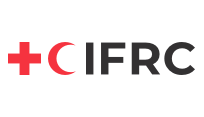T.2 Assessment Checklist
An Assessment Checklist acts as a guide for appropriate data collection in an assessment (chapter [A]). Generic checklists, such as the Assessment Checklist in the WASH chapter of the Sphere handbook, need adapting to the specific context. Checklists are also recommended for collecting data during Observation [T.28] and Transect Walks [T.52].

Assessment Checklists help ensure that all the key points are covered. They act as a focus, springboard and aide-memoire for more specific questions. Not all the points in the checklist may be relevant; it is important to discuss and agree on the most appropriate issues and specific questions according to the context. A checklist is more than a list of questions; it should link with other assessment methods, both qualitative and quantitative A.4. An Assessment Checklist can help to prioritise whether an intervention is needed and the likely scale of the response. It is useful to assess WASH needs, identify available resources, describe local conditions and collect information on demographics, hygiene behaviour and public health. The checklist should encourage the assessors to consider all the groups in the community including men, women, children, older and vulnerable people, engaging with them and understanding their views and preferences. Checklists are also a useful tool for coordinating with others P.9. The Sphere WASH assessment checklist helps plan joint assessments and the findings can then be shared and used for decision making. Care should be taken to select only those questions that are necessary, to avoid wasting respondents’ time and raising expectations. Checklists will need to be translated, copied and printed; assessment teams will need training in their use.
Applicability
Assessment Checklists are important in all emergencies, but especially during the acute response. The advantage of a checklist is that it guides the assessments. The checklist can be prepared during emergency preparedness and quickly adapted when needed. In a rapid assessment, the checklist will need shortening to prioritise the most urgent and important assessment points. As the situation changes, ongoing assessment will be needed and the checklist may need adapting. It is useful to coordinate assessments and share, discuss and combine checklists.
Do
Adapt generic checklists to the context
Be open to new emerging information and update the checklist as needed
Attach the Assessment Checklist to the assessment report
Don't
Do not raise community expectations by asking a long list of questions about issues beyond the programme’s scope or resources
Do not use the checklist as you would a questionnaire: remember to listen, consult and engage with people
Practical Example
After the earthquake in Nepal, several WASH teams were doing rapid assessments in different areas. One sanitation team was focusing on hygiene promotion and sanitation. They used a standard checklist from their organisation and the Sphere checklist. They took the most critical points from the two lists and shared the checklist with teams in other areas to aid comparison and decide priorities. After the programme began further points were added to the checklist. This enabled the team to gather more information, build on the initial rapid assessment and deepen their understanding of the situation.
Key Decision Critria
Response Phase
HP Component
Target Group
Application Level
References WASH assessment checklist in the Sphere handbook
Sphere Association (2018): The Sphere Handbook: Humanitarian Charter and Minimum Standards in Humanitarian Response 4th Edition
Implementation guide, including links to checklists in Sphere
Sphere (2021): Sphere in Context for Assessments, Monitoring, Evaluation and Learning. Sphere Unpacked
Example of an observation checklist
UN OCHA (2012): Multi Cluster Initial Rapid Assessment Observation Checklist
Checklist for hygiene promotion review
UNHCR (2017): UNHCR Hygiene Promotion Guidelines
General assessment guide and how to use a checklist
IFRC (2005): Guidelines for Emergency Assessment
British Red Cross (2006): Sanitation and Hygiene Checklist. Mass Sanitation Module Emergency Response Unit





